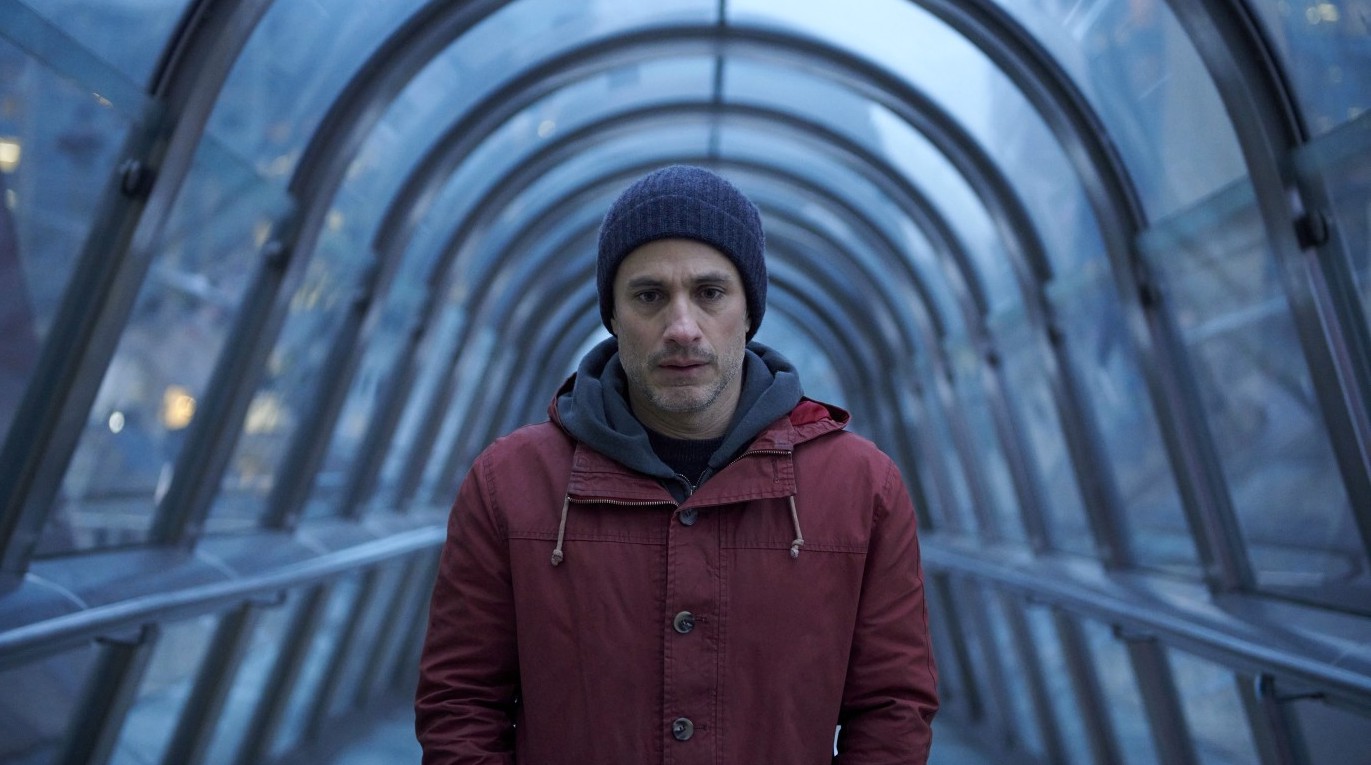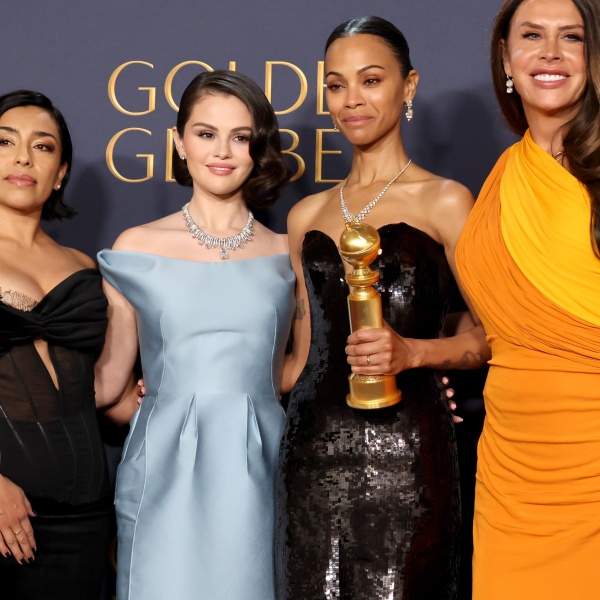It’s the end of an era for the Berlin International Film Festival, as Artistic Director Carlo Chatrian and his co-head Mariette Rissenbeek — a pair of fearless cineastes and programmers who came onboard together in the summer of 2019, and helped steer the world’s largest film festival through the crisis of the pandemic years — are being unceremoniously shoved out to sea after the 2024 edition as a part of cost-cutting measures instituted by the Federal Government Commissioner for Culture and the Media, Claudia Roth.
It’s too soon to say how the Berlinale will shrink and suffer in the absence of the leadership that has allowed the festival to remain such a vital arena for world cinema at a time of industry-wide constriction (last year’s lineup included standouts like Christian Petzold’s “Afire,” Lila Aviles’ “Tótem,” and Makoto Shinkai’s “Suzume”), but even a quick overview of this year’s program suggests that Chatrian and Rissenbeek will be going out with a bang.
As usual, the Berlinale will play host to hundreds of films from around the world, the most high-profile of which will premiere in a Competition section that boasts enough big names to go toe-to-toe with the likes of Cannes and Venice: Olivier Assayas, Hong Sang-soo, Mati Diop, and the great Abderrahmane Sissako will all be unveiling new work at the Palast over the next two weeks.
And while Chatrian and Rissenbeek’s legacy will inevitably be judged by the strength of those selections (fingers crossed that Lupita Nyong’o’s jury star-studded jury helps spotlight the right ones), the lifeblood of the Berlinale continues to be found in the deep and essential sidebars whose selections may never receive a proper release in the United States. While our preview may be focused on the Competition, it’s those under-the-radar titles that best reflect the vision and dedication of the festival’s leadership, and the impact those artists have on the next decade of cinema will ultimately tell the full story of what the film world lost when the Berlinale decided to think smaller.
But if the 75th annual Berlinale might be in for a spot of trouble come next February, the 74th is poised to represent the festival at its best when it kicks off with Tim Mielants’ “Small Things Like These” on Thursday night, and Cillian Murphy’s first starring role since “Oppenheimer” along with it. Here are the 10 movies we’re most excited to see at the 2024 Berlin International Film Festival, which runs from February 15 to February 25.
This article features additional reporting by Kate Erbland.
-
“Another End” (dir. Piero Messina)

Image Credit: Cinetic Sometimes it feels like we’d only need a few more hours with a dead loved one in order to get the closure that was deprived of us at the time of their death, but the truth is that an unexpected “hello” might be too hopeful and intoxicating for people to focus on crafting a more perfect “goodbye.” So the widowed Sal (Gael García Bernal) learns the hard way in Piero Messina’s “Another End,” a mournful and contemplative sci-fi drama set in a near-future in which a deceased person’s consciousness can be uploaded into the body of a willing host — a kind of emotional surrogacy that’s rife with potential complications.
Sure, everything seems hunky-dory when Sal discovers that his dead ex has effectively come back to him in the form of Renate Reinsve, but it isn’t long before problems begin to emerge, as Sal struggles to disentangle his ex’s ghost from her very tall new shell, and struggles even harder to say goodbye to either of them. Imagine a heavy, airless “Eternal Sunshine of the Spotless Mind” for unbearable grief and you’ll be on the right track.
-
“Black Tea” (dir. Abderrahmane Sissako)

Image Credit: Gaumont For his first movie since 2014’s masterful “Timbuktu” (which IndieWire named one of the best films of its decade), Mauritanian-born Malian auteur Abderrahmane Sissako returns with a sweeping romantic drama that spans from the Ivory Coast to the tea fields of Guangzhou. “Black Tea” stars “Girlhood” actress Nina Melo as a woman who ditches her husband-to-be at the altar and flees east from West Africa, eventually meeting — and falling for — a Chinese man (Han Chang) who initiates her in the ancient art of Chinese tea ceremonies.
If that premise sounds a touch more like “The Taste of Things” than you might expect from such a fearlessly political filmmaker, we imagine that Sissako will find a way to put his own indelible spin on a story he was inspired to tell after eating at a restaurant owned by an Afro-Chinese couple; a restaurant called “The Perfumed Hill.” We had been holding our breath for a Cannes premiere, but the Berlinale got the jump on this one, and it instantly became one of the most anticipated movies of the festival’s 2024 Competition.
-
“La Cocina” (dir. Alonso Ruizpalacios)

Image Credit: Filmadora “A Cop Movie” director Alonso Ruizpalacios returns with a hard-nosed kitchen drama so intense that it makes “The Bear” feel like the prison cafeteria scenes from “Paddington 2.” Based on an Arnold Wesker play but unfolding more like a WWI movie (a virtuoso sequence in which the kitchen gets flooded during rush hour feels like something straight out of “Gallipoli”), “La Cocina” takes us into the steel-lined trenches of the kitchen at an overpriced tourist trap near Times Square, where a self-divided army of undocumented cooks and cleaners try to keep up with a relentless bombardment of orders in the hopes that the restaurant’s owner might help get their paperwork sorted at some point.
The most ambitious of these invisible laborers is a salty dreamer named Pedro (Raül Briones Carmona), who’s in love with the restaurant’s weary hostess (Rooney Mara), and refuses to accept the difficult truths that might complicate their chance at a future together. When rumors start to spread that a member of the kitchen staff has stolen $870 from the till, those truths come home to roost with a vengeance, turning this black-and-white pressure-cooker into an explosive portrait of the soft borders that separate the American Dream from the possibility of making it real.
-
“Crossing” (dir. Levan Akin)

Image Credit: Totem Films Riding high on his 2019 Cannes smash “And Then We Danced,” Levan Akin returns for a less propulsive but equally well-choreographed drama about the boundaries that separate people from each other and themselves. Starting in Akin’s ancestral homeland of Georgia, “Crossing” tells the story of a retired teacher named Lia (Mzia Arabuli) who vows to discover what happened to a long-lost niece, a mission that soon finds our heroine joining forces with her neighbor and following the clues into Turkey, where they cross paths with a lawyer who’s dedicated to fighting for trans rights.
Spanning several different worlds but always set right smack at the center of Akin’s career-long exploration of class and gender, “Crossing” promises to show a side of Istanbul that seldom appears on screen, as the only city on Earth that stretches across two continents becomes the perfect backdrop for a film about the borderlessness of the human experience. And while the moves may not be quite as acrobatic as they were in Akin’s last picture, it’s probably a safe bet that we’ll see some dancing along the way.
-
“Cuckoo” (dir. Tilman Singer)

Image Credit: NEON “Luz” filmmaker Tilman Singer’s follow-up to his demonically good 2018 feature debut boasts plenty of intriguing elements that will bait horror fans of all stripes, from its tagline (“The adolescent needs to be trained”) to a synopsis that includes everything from a creepy adult to a child in need, plus “strange noises and bloody visions” and the promise of a massive family secret. The film’s icky first teaser (complimentary) laid on the atmosphere thick – this one is set at an Alps resort, where things are, dun dun, not what they seem – and offered enough glimpses galore at something truly sick to grab our attention and then some.
While details might be slim on this one (and we’re guessing that’s a good thing), we do know that the film stars “Euphoria” breakout Hunter Schafer, and that Singer has assembled a sterling supporting cast alongside her, including genre veteran Dan Stevens, plus Jessica Henwick, Marton Csókás, and Jan Bluthardt. Interested parties won’t need to a) travel to Berlin to see the film or b) wait too long to check it out for themselves, as Neon will release it in theaters on May 3. —KE
-
“Dahomey” (dir. Mati Diop)

Image Credit: Les Films du Bal In her first feature since 2019’s indelibly striking “Atlantics,” French-Senegalese filmmaker and actress Mati Diop returns with another rich and unsettled reflection on the spirit of the African diaspora, this one — a 67-minute documentary — focusing on a debate that sparked among students at the University of Abomey-Calavi in Benin when 26 royal treasures of the Kingdom of Dahomey were returned to their country of origin in November 2021, more than 100 years after they had been stolen by French colonial troops and shipped off to Paris for display. Diop’s intensely focused inquiry follows along as the modern descendents of the Dahomey people discuss the meaning these relics might have for a country that has been forced to carve out its own identity in their absence.
-
“The Empire” (dir. Bruno Dumont)

Image Credit: Memento International It’s always exciting when a big, poppy hunk of science fiction manages to squeak into the Competition lineup at a prestigious festival, and maybe even more so when the movie in question is less of a self-serious space opera than an ultra-colorful “Star Wars” parody. Poised to be another piece of galaxy-brained low art from the director of “Slack Bay” and “Jeannette: The Childhood of Joan of Arc” (which revisited the patron saint of France through the lens of a heavy metal musical), Bruno Dumont’s “The Empire” begins with two intergalactic armies clashing forces on the shores of Northern France, the rare premise that might allow for a poster that contains both lightsabers and grazing cows.
So frequently delayed during the pandemic that original stars Lily-Rose Depp and Virginie Efira both had to drop out due to scheduling conflicts (as opposed to Adèle Haenel, who exited in response to the “dark, sexist, and racist” content of Dumont’s script), “The Empire” is definitely going to be unlike anything else at the Berlinale this year, and that’s reason enough to keep a close eye on how it plays there.
-
“Sons” (dir. Gustav Möller)

Image Credit: Nordisk Films Production “The Guilty” director Gustav Möller returns with another tense and claustrophobic moral thriller, this one starring Sidse Babett Knudsen as Eva Hansen, a prison guard whose work starts to become dangerously personal when a violent young man from her past (Sebastian Bull) is transferred into the maximum-security area of her jail.
When Eva volunteers to be transferred there along with him (so that she can make his life as miserable as possible), the guard and the inmate soon find themselves engaged in a mutually destructive quid pro quo that challenges the limits of justice, the possibility for rehabilitation, and the corruptive nature of the power dynamics that undergird the prison system. Festival attendees should brace for a breathless slow-burn that refuses to offer even the slightest hint of easy catharsis or a clear resolution.
-
“Suspended Time” (dir. Olivier Assayas)

Image Credit: Playtime “Wasp Network” (2019) may have been a rare misstep in Olivier Assayas’ otherwise brilliant career, but the protean French auteur has always redefined himself as a matter of course with each project (as was evidenced by his decision to follow “Wasp Network” with a deliriously good sequel series to his 1996 masterpiece, “Irma Vep”), and so his first movie in almost five years demands to be welcomed with the same enthusiasm that greeted the rest of his work.
And while many of us may have already had our fill of COVID dramas, the early days of the pandemic seem like fertile ground for a filmmaker like Assayas, who has always been compelled by unusual temporalities, and the unique circumstances in which the past might insinuate itself into the present.
The intriguingly self-reflexive “Suspended Time” stars Micha Lescot as a director named Etienne who joins his brother Paul (Vincent Macaigne) in their childhood home during lockdown, a situation that stirs up old memories and forces Micha to reflect on how much — and how little — has changed since the last time he lived there. The festival synopsis teases a sense of “disturbing strangeness,” so here’s hoping that Assayas finds a way to make room for the vaguely supernatural flights of fancy that have made even some of his most grounded movies feel suddenly transcendent.
-
“A Traveler’s Needs” (dir. Hong Sang-soo)

Image Credit: Jeonwonsa Film Co. Production It wouldn’t be the Berlinale without at least one new film by Hong Sang-soo, but there’s nothing obligatory or more of the same about a project that finds the prolific Korean auteur reuniting with the great Isabelle Huppert, who previously appeared in Hong’s “In Another Country” and the Cannes-set ditty “Claire’s Camera.”
“A Traveler’s Needs” casts Huppert as a woman abroad — a mysterious foreigner named Iris who arrives in Korea with no money to her name, and soon begins teaching French in order to sustain her daily makgeolli habit. What happens from there is anyone’s guess, but a cast list full of Hong regulars like Lee Hye-young, Kwon Hae-hyo, and Cho Yunhee suggests that Iris’ adventures will be as comfortingly familiar and wildly inventive as fans have come to expect from the director’s work. With a 90-minute runtime (long by Hong’s recent standards) and a Competition berth at one of the world’s most prestigious festivals, we’re keeping our fingers crossed for some major Hong.



